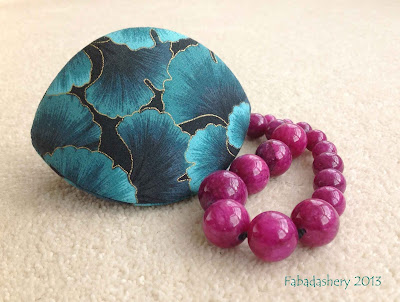 |
| Clover Clamshell Accessories Case |
 |
| Clover Clamshell Accessories Case - Small, Medium, Large |
 |
| Cutting Fabric for Clover Clamshell Forms |
 |
| Sticking wadding to plastic templates - Clover Clamshell Case |
 |
| Lacing fabric around Clover Clamshell Plastic Templates |
 |
| Stitching the outer and inner templates together, with the help of Clover Wonder Clips |
 |
| Squeeze Opening - Clam Shell Accessories Case |
 |
| Clover Clamshell Accessories Case for Jewellery |
Joining up with Whoop Whoop Friday! and Crazy Mom Quilts.

That is really cute! I love snappy opening things, very satisfying!
ReplyDeletep.s. do you know your word verification is on?
That is so neat, thanks for sharing!
ReplyDeleteSuch a cute idea! Thanks for showing us how it's done!! Whoop whoop!!
ReplyDeleteWhat a darling pouch! I wrote down the name of the kit, I think I might be interested in this one!
ReplyDeleteVery neat. Lovely finish!
ReplyDeleteHi. Can I ask what thickness/weight acetate did you find best? Most that I see in stationers are too thin/flimsy. Thank you!
ReplyDelete